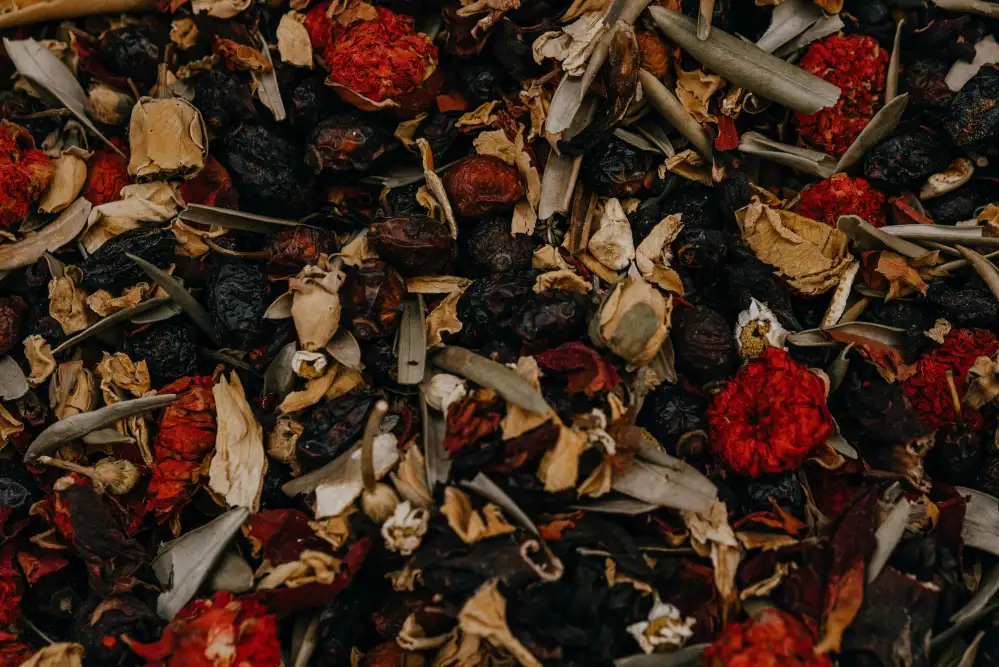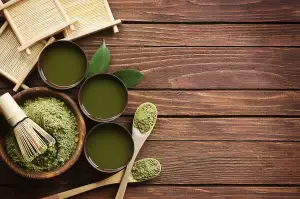Unlock the Power of Lucid Dreaming: Discover the Top Herbs for Enhanced Dream Experiences

- Explanation of Lucid Dreaming and its Potential
- Overview of Herbs and their Role in Lucid Dreaming
- Herbs that May Enhance Lucid Dreaming:
- Calea Zacatechichi (Mexican Dream Herb)
- Mugwort
- African Dream Root (Silene capensis)
- Blue Lotus
- Valerian Root
- How to Use Herbs for Lucid Dreaming:
- Tea Infusions
- Herbal Pillows
- Essential Oils
- Precautions and Considerations when Using Herbs for Lucid Dreaming
Lucid dreaming is a phenomenon that has fascinated humans for centuries. It refers to the state of being aware and conscious within a dream, allowing individuals to actively participate and manipulate their dream experiences. This extraordinary ability offers a myriad of benefits, both psychological and spiritual.
One of the primary advantages of lucid dreaming is the opportunity for self-exploration and personal growth. During these dreams, individuals can confront fears, overcome challenges, and practice new skills in a safe and controlled environment. Lucid dreaming also provides a platform for creativity, where artists, writers, and musicians can tap into their subconscious mind for inspiration.
Moreover, lucid dreaming has been associated with improved problem-solving abilities and enhanced memory consolidation. By consciously engaging in dream scenarios, individuals can develop cognitive skills that may transfer to their waking lives. Additionally, lucid dreaming offers an escape from reality, providing relaxation and stress relief.
As we delve deeper into the world of lucid dreaming, it becomes clear that this extraordinary experience holds immense potential for personal development and exploration. In the following sections of this article, we will explore the role of herbs in enhancing lucid dream experiences.
Explanation of Lucid Dreaming and its Potential
Lucid dreaming is a phenomenon in which the dreamer becomes aware that they are dreaming while still in the dream state. Unlike regular dreams, lucid dreams offer a unique opportunity to consciously control and manipulate the dream environment. This potential for control opens up a world of possibilities for personal growth, self-exploration, and creativity.
During a lucid dream, individuals can actively shape their dreamscape, interact with dream characters, and even influence the narrative of their dreams. This ability to consciously navigate within the dream realm has fascinated researchers and psychologists for centuries.
Lucid dreaming holds immense potential for psychological and emotional healing. It allows individuals to confront fears, overcome nightmares, and explore unresolved emotions within a safe and controlled environment. Moreover, lucid dreaming can enhance problem-solving skills, boost creativity, and provide an avenue for practicing skills or rehearsing scenarios.
Furthermore, lucid dreaming has been linked to improved sleep quality and overall well-being. By actively engaging with their dreams during the night, individuals may experience increased feelings of satisfaction upon waking up. Lucid dreaming also offers a unique form of entertainment and adventure that transcends the boundaries of reality.
Overall, lucid dreaming presents an exciting frontier for exploration and personal development. With its potential to enhance self-awareness, promote emotional healing, and unleash creative potential, it is no wonder that many people are drawn to unlock the power of lucid dreaming.
Overview of Herbs and their Role in Lucid Dreaming
Herbs have been used for centuries to enhance the dream experience and promote lucid dreaming. These natural substances are believed to stimulate the brain, increase dream recall, and induce vivid and memorable dreams. While scientific research on herbs and their effects on lucid dreaming is limited, anecdotal evidence suggests that certain herbs can indeed enhance dream experiences.
The active compounds found in these herbs interact with neurotransmitters in the brain, potentially influencing the sleep cycle and promoting more vivid dreams. Some herbs are known to increase acetylcholine levels, a neurotransmitter associated with memory and REM sleep, which is when most dreaming occurs.
It's important to note that individual responses to these herbs may vary, and not everyone may experience enhanced dream experiences. Additionally, it's crucial to approach herbal supplementation for lucid dreaming with caution and consult with a healthcare professional before incorporating them into your routine.
By exploring the world of herbs for lucid dreaming, individuals can potentially unlock new realms of consciousness during sleep and delve into exciting adventures within their own minds.
Herbs that May Enhance Lucid Dreaming:
1. Calea Zacatechichi (Mexican Dream Herb): Known for its traditional use in Mexico, this herb is believed to enhance dream recall and intensify the vividness of dreams. It is commonly consumed as a tea or smoked before bedtime.
2. Mugwort: This herb has been used for centuries to stimulate lucid dreaming. It is known to promote deep sleep and increase dream clarity. Mugwort can be consumed as a tea or placed under the pillow for enhanced dream experiences.
3. African Dream Root (Silene capensis): Indigenous to South Africa, this herb is highly regarded for its ability to induce vivid and prophetic dreams. It is traditionally consumed as a powder or infusion before sleep.
4. Blue Lotus: Revered in ancient Egypt, blue lotus is believed to enhance relaxation and promote lucid dreaming. Its calming effects can lead to more vivid and memorable dreams when consumed as a tea or tincture.
5. Valerian Root: Widely used as a natural sleep aid, valerian root may also contribute to lucid dreaming experiences. It helps improve sleep quality, leading to increased dream recall and potential lucidity.
These herbs have long been associated with enhancing dream experiences, but it's important to note that individual results may vary. It's always recommended to consult with a healthcare professional before incorporating any new herbs into your routine, especially if you have underlying health conditions or are taking medications that may interact with these herbs.
Calea Zacatechichi (Mexican Dream Herb)
Calea Zacatechichi, also known as Mexican Dream Herb, has been used for centuries by the indigenous people of Mexico for its dream-enhancing properties. This herb is believed to increase dream recall and induce vivid and lucid dreams. It contains compounds that stimulate brain activity during sleep, leading to more intense dream experiences. Calea Zacatechichi can be consumed in various forms such as tea infusions or herbal capsules. Its effectiveness may vary from person to person, but many individuals have reported enhanced dream experiences after using this herb.
Mugwort
Mugwort, scientifically known as Artemisia vulgaris, is a popular herb used for enhancing lucid dreaming experiences. It has been used for centuries in various cultures for its dream-enhancing properties. Mugwort contains a compound called thujone, which is believed to stimulate vivid and memorable dreams.
When consumed or inhaled before sleep, mugwort can potentially increase dream recall and intensify the overall dream experience. Some users have reported experiencing more lucid dreams while using mugwort.
To use mugwort for lucid dreaming, you can brew it into a tea infusion by steeping dried mugwort leaves in hot water for about 10 minutes. Drink the tea before bedtime to enhance your dream experiences. Alternatively, you can place dried mugwort leaves inside an herbal pillow and keep it near your head while sleeping.
It's important to note that mugwort should be used with caution as it may cause allergic reactions in some individuals. Pregnant women should avoid using mugwort due to its potential effects on pregnancy. Always consult with a healthcare professional before incorporating any herbs into your routine.
Incorporating mugwort into your lucid dreaming practice may help unlock the power of your dreams and provide you with unique and memorable experiences during sleep.
African Dream Root (Silene capensis)
African Dream Root, scientifically known as Silene capensis, is a herb native to South Africa. It has been used for centuries by the Xhosa people to induce vivid and lucid dreams. The active compound in African Dream Root is called Cis-8-methoxy-2-(isopropylamino)tetralin, which is believed to enhance dream recall and promote lucidity during sleep.
Traditionally, the root of the plant is ground into a powder and consumed as a tea before bedtime. The Xhosa people believe that this ritual connects them with their ancestors and allows them to receive guidance through their dreams. African Dream Root is also known for its ability to bring about prophetic dreams and spiritual experiences.
While scientific research on African Dream Root is limited, anecdotal evidence suggests that it may indeed enhance dream experiences. Users have reported experiencing more vivid and detailed dreams, increased dream recall, and heightened lucidity while using this herb.
It's important to note that African Dream Root should be used with caution as it can cause nausea and stomach discomfort in some individuals. Additionally, pregnant or breastfeeding women should avoid using this herb due to its unknown effects on fetal development.
If you decide to try African Dream Root for enhancing your dream experiences, it's recommended to start with a small dosage and gradually increase if needed. As with any herbal supplement, it's always best to consult with a healthcare professional before incorporating it into your routine.
Overall, African Dream Root holds promise as an herb that may enhance lucid dreaming experiences. Its traditional use by the Xhosa people adds cultural significance to its reputation as a potent dream-enhancing herb.
Blue Lotus
Blue Lotus, also known as Nymphaea caerulea, is a sacred flower that has been used for centuries in ancient Egyptian and Mayan cultures for its spiritual and medicinal properties. This herb is believed to enhance dream experiences and promote lucid dreaming.
The Blue Lotus contains various alkaloids that have sedative and psychoactive effects on the body. These compounds interact with the brain's receptors, promoting relaxation and inducing a state of calmness. This herb is also known to stimulate vivid and memorable dreams, making it a popular choice among those seeking enhanced dream experiences.
In addition to its dream-enhancing properties, Blue Lotus is often used for its mood-lifting effects. It can help reduce anxiety and stress levels, allowing individuals to enter a relaxed state conducive to lucid dreaming. Some users have reported experiencing heightened creativity and enhanced spiritual awareness while using this herb.
To incorporate Blue Lotus into your lucid dreaming practice, it can be consumed in various forms. The dried petals or powder can be brewed into a tea infusion, which should be consumed about an hour before bedtime. Alternatively, Blue Lotus can be added to herbal pillows or used as an essential oil for aromatherapy purposes.
It's important to note that while Blue Lotus is generally considered safe when used responsibly, it may cause mild side effects such as drowsiness or gastrointestinal discomfort in some individuals. As with any herbal supplement, it's advisable to consult with a healthcare professional before incorporating Blue Lotus into your routine, especially if you have any underlying medical conditions or are taking medications.
In conclusion, Blue Lotus is one of the herbs that may enhance lucid dreaming experiences. Its calming and mood-lifting properties make it an attractive option for those looking to explore the world of lucid dreaming. However, it's essential to use this herb responsibly and consider individual sensitivities or potential interactions with other substances.
Valerian Root
Valerian root is a popular herb known for its calming and sedative properties. It has been used for centuries to promote relaxation and improve sleep quality. In the context of lucid dreaming, valerian root can be beneficial in enhancing dream recall and promoting vivid dreams.
Valerian root contains compounds that act as natural relaxants, helping to calm the mind and induce a state of relaxation before sleep. This can create an optimal environment for lucid dreaming by reducing stress and anxiety that may hinder dream experiences.
To use valerian root for lucid dreaming, it is commonly consumed in the form of herbal tea or capsules. The tea infusion can be prepared by steeping 1-2 teaspoons of dried valerian root in hot water for about 10 minutes. It is recommended to consume the tea about an hour before bedtime to allow its effects to take place.
It's important to note that while valerian root is generally considered safe, it may cause drowsiness or grogginess upon waking up. Therefore, it's advisable to start with a low dosage and gradually increase if needed. Additionally, it's always best to consult with a healthcare professional before incorporating any new herbs or supplements into your routine.
In conclusion, valerian root can be a valuable herb in the pursuit of lucid dreaming. Its calming properties may contribute to more relaxed sleep, leading to enhanced dream experiences. However, individual responses may vary, so experimenting with different herbs and finding what works best for you is key in unlocking the power of lucid dreaming.
How to Use Herbs for Lucid Dreaming:
a. Tea Infusions: One popular method of using herbs for lucid dreaming is by making tea infusions. Simply steep the desired herb in hot water for about 10 minutes, strain, and drink before bed. Calea Zacatechichi and Mugwort are commonly used in tea form for their dream-enhancing properties.
b. Herbal Pillows: Another way to incorporate herbs into your lucid dreaming practice is by creating herbal pillows. Fill a small cloth bag with dried herbs such as Mugwort or Valerian Root and place it under your pillow or near your head while you sleep. The scent of these herbs can promote vivid dreams and potentially increase the likelihood of having lucid dreams.
c. Essential Oils: Some herbs can also be used in the form of essential oils to enhance dream experiences. Dilute a few drops of essential oil from herbs like Blue Lotus or African Dream Root in a carrier oil, such as coconut or jojoba oil, and apply it to your wrists or temples before bedtime. The aroma may help induce more vivid dreams and increase the chances of achieving lucidity.
Remember to always follow recommended dosages and consult with a healthcare professional before using any herbs for lucid dreaming purposes. It's important to be aware that individual experiences may vary, and results cannot be guaranteed. Experimentation with different methods and herbs may be necessary to find what works best for you in unlocking the power of lucid dreaming.
Tea Infusions
Tea infusions are a popular and effective way to incorporate herbs into your lucid dreaming practice. To make a tea infusion, simply steep the desired herb in hot water for 10-15 minutes. Calea Zacatechichi, also known as Mexican Dream Herb, is commonly used in tea form to enhance dream recall and induce vivid dreams. Mugwort tea is another popular choice, believed to stimulate lucid dreaming by increasing dream intensity and clarity. African Dream Root, or Silene capensis, can also be brewed into a tea to promote lucid dreaming experiences. Remember to follow dosage guidelines and consult with an herbalist or healthcare professional before using any herbs for lucid dreaming purposes.
Herbal Pillows
Another effective way to harness the power of herbs for lucid dreaming is by using herbal pillows. These pillows are filled with dried herbs known for their dream-enhancing properties. When placed under your pillow or near your bed, the gentle aroma of these herbs can promote relaxation and stimulate vivid dreams.
One popular herb used in herbal pillows is lavender. Lavender has calming properties that can help you relax and fall into a deep sleep, making it easier to enter the lucid dreaming state. Its soothing scent also aids in reducing anxiety and promoting a peaceful sleep environment.
Another herb commonly used in herbal pillows is chamomile. Chamomile has been used for centuries to promote relaxation and improve sleep quality. It can help calm the mind and induce a sense of tranquility, creating an ideal environment for lucid dreaming.
To create an herbal pillow, simply fill a small cloth bag with dried herbs such as lavender, chamomile, or a combination of both. Place the pillow under your regular pillow or beside your bed before going to sleep. The subtle fragrance released by the herbs will gently surround you as you sleep, enhancing your dream experiences.
It's important to note that while herbal pillows can be beneficial for some individuals, they may not work for everyone. Each person's response to herbs can vary, so it's essential to experiment and find what works best for you.
Incorporating herbal pillows into your nightly routine can be a delightful way to explore the world of lucid dreaming. Combined with other techniques such as keeping a dream journal and practicing reality checks during the day, herbal pillows can contribute to more vivid and memorable dream experiences.
Essential Oils
Essential oils can also be used to enhance lucid dreaming experiences. Certain oils have been found to promote relaxation, increase dream recall, and induce vivid dreams. Lavender oil is known for its calming properties and can help create a peaceful sleep environment. Peppermint oil has stimulating effects and may increase alertness during dreams. Rosemary oil is believed to enhance memory and may improve dream recall. To use essential oils for lucid dreaming, add a few drops to a diffuser or mix with a carrier oil and apply topically before bed. Remember to dilute the oils properly and consult with a professional if you have any allergies or sensitivities.
Precautions and Considerations when Using Herbs for Lucid Dreaming
While herbs can enhance lucid dreaming experiences, it is important to exercise caution and consider certain factors before using them. Firstly, it is crucial to consult with a healthcare professional or herbalist before incorporating any new herbs into your routine, especially if you have any underlying health conditions or are taking medications.
Additionally, some individuals may be more sensitive to the effects of certain herbs, so it is advisable to start with small doses and gradually increase as needed. It is also essential to source herbs from reputable suppliers to ensure their quality and purity.
Furthermore, it is important to note that herbs can interact with other substances such as alcohol or drugs, so it is best to avoid using them concurrently. Pregnant or breastfeeding women should also exercise caution and seek medical advice before using any herbs for lucid dreaming.
Lastly, while herbs may enhance dream experiences, they cannot replace proper sleep hygiene practices. Adequate sleep duration and quality are vital for overall well-being. Therefore, using herbs for lucid dreaming should not be seen as a substitute for maintaining a healthy sleep routine.
By considering these precautions and consulting professionals when necessary, individuals can safely explore the world of lucid dreaming with the assistance of herbs.
In conclusion, herbs have been used for centuries to enhance dream experiences and unlock the power of lucid dreaming. Calea Zacatechichi, Mugwort, African Dream Root, Blue Lotus, and Valerian Root are among the top herbs known for their potential to enhance lucid dreaming.
By incorporating these herbs into your routine through tea infusions, herbal pillows, or essential oils, you can increase your chances of having vivid and memorable dreams. However, it is important to exercise caution and consider individual sensitivities when using herbs for lucid dreaming.
While herbs can offer a natural and holistic approach to enhancing dream experiences, it is essential to consult with a healthcare professional before incorporating them into your routine. They can provide guidance on dosage, potential interactions with medications, and any precautions that need to be taken.
Embark on a journey into the world of lucid dreaming by exploring the use of these powerful herbs. With proper knowledge and care, you can unlock the potential for enhanced dream experiences and delve into the depths of your subconscious mind.
Published: 04. 02. 2024
Category: Health



